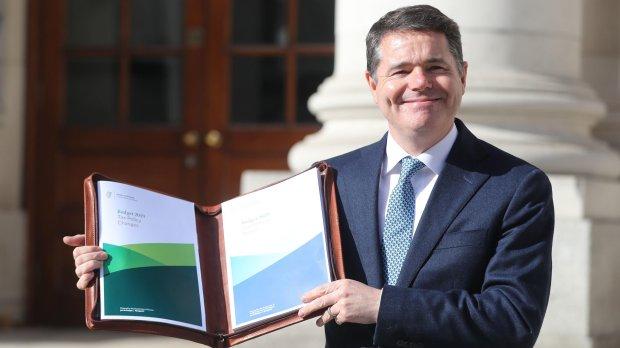For anyone interested in the sustained funding of third level education in Ireland, Budget Day has become more like Groundhog Day.
1,183 days before last week’s Budget, the Cassells Report identified the funding challenges facing our higher education system and set out the scale of the investment required to deliver on our national ambition.
But four Budgets later, there is still a lack of recognition by government of the funding crisis in our universities. Of course, we understand the cautious approach to the Budget by the government in the context of the considerable uncertainty arising from Brexit. However, this lack of recognition of the funding crisis in higher education is deeply concerning and is sowing the seeds of future failure for Ireland, as we compete in a post-Brexit Europe.
The case for more funding has been made and the evidence for action is clear.
The Cassells Report was not written by the universities. While it had third level representation, its members included an independent chair and senior representatives from the Departments of Education and Public Expenditure. Its message was clear – “there is a need and a desire for urgent reform of the funding landscape. The funding system is simply not fit for purpose”.
Earlier this year, independent research from Indecon highlighted the €8.9 billion contributed annually by the country’s seven universities to the Irish economy (almost nine times the annual state investment in the university sector!). Also highlighted was the €1.6 billion net gain to the Exchequer from a single year’s cohort of graduates and the net premia in earnings achieved by graduates of Irish universities, which exceed those of the esteemed Russell Group of UK universities.
Despite this overwhelming case for investment, each Budget since 2016 has followed a pattern. No government decision on a sustainable funding model, no broad political consensus on funding third level and minimal to modest increases, most of which is already committed.
So, what can be done? How do we prevent Budget 2021 and Budget 2022 becoming the next instalments of Groundhog Day? The answer is that we must all make the case for greater investment in higher education at every opportunity. The leadership of the universities, staff, students, parents and the Irish Universities Association, as the representative body of the sector – all can and must play a role.
In the past month alone, we have seen the provost of Trinity College Dublin publicly set out how, as in other Irish universities, the college has sought to make up the shortfall in State investment by staff working harder and by entrepreneurial and commercial activities, as well as other revenues. But, as Patrick Prendergast said, “it’s clearly not enough”.
Last week, Hugh Brady, President and Vice-Chancellor of the University of Bristol, said that the state of Ireland’s higher education and research system should be viewed as “a national crisis”. He set out in very stark terms the comparisons between the level of investment in Irish and UK universities. For example, he revealed that by a conservative estimate the University of Bristol probably receives at least 25% more funding per student than UCD or Trinity. The University of Bristol alone secured more European Research Council grants this year than all the Irish universities put together.
We will have a General Election within the next six months. Canvassers will be knocking on your doors, looking for votes. I hope the message they get from students, from parents and the staff of our universities is the same: sustained and adequate funding of third level must be a priority for the next Government.
Our politicians need to hear the same message. Between 2008 and 2017 direct State grants to universities and other third level colleges fell from €9,000 to €5,000 per student. In the same period, university enrolments increased by 28%. By 2030, the student population in Irish universities is expected to surge by 25,000. A commitment to sustained investment should be a cornerstone of the next Government’s programme.
Without this, the central role played by our universities in our economy and our society will be fatally undermined. We won’t be able to develop the talent pipeline for society and the growing knowledge economy. Our campuses will be diminished as hubs of creativity, knowledge creation and innovation. Our ability to support communities as local employers – amounting to almost 22,000 jobs – and to nurture culture, heritage and sport in those communities will be damaged.
In the film Groundhog Day, Phil Connors, portrayed by Bill Murray, managed to change Groundhog Day by changing his behaviour. We should not underestimate the networks we can harness to influence political change – our students, our classmates, our staff, our families, our partners in society and industry. Sustained, determined campaigning is required. The IUA is willing to lead that campaign – but we need you with us.






